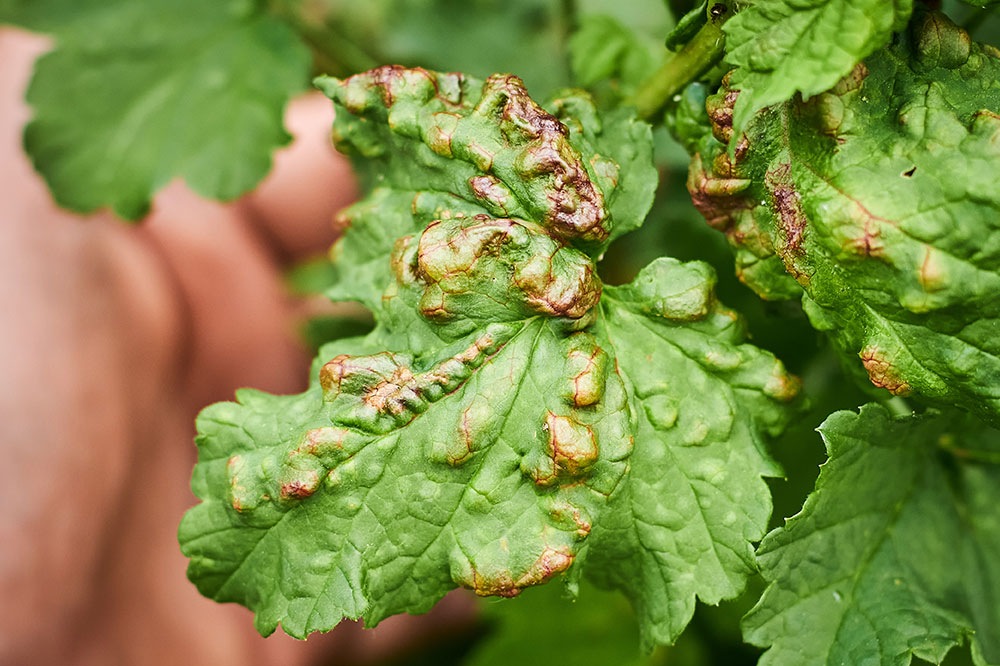Comprehensive Guide to Preventing and Managing Ticks in Your Garden Naturally
Discover comprehensive, eco-friendly strategies to prevent and control tick infestations in your garden. Learn about natural remedies like diatomaceous earth, beneficial nematodes, and habitat modifications to create a pest-free outdoor space. Protect your family, pets, and plants with sustainable practices that promote a healthy, enjoyable garden environment.

Comprehensive Guide to Preventing and Managing Ticks in Your Garden Naturally
Maintaining a beautiful garden provides a welcoming outdoor refuge for relaxation, gardening, and family activities. However, one of the persistent challenges faced by homeowners and garden enthusiasts alike is the presence of ticks—unsightly, potentially harmful pests that can threaten both your plants and your pets. These tiny arachnids are notorious for transmitting diseases and causing discomfort to humans and animals. Therefore, understanding effective, eco-friendly strategies to prevent and control ticks is essential for a safe and healthy garden environment.
In this extensive guide, we will explore natural, sustainable methods to combat tick infestations, ensuring your garden remains a pest-free sanctuary. From biological controls to habitat modification, these tactics are designed to be safe for your plants, pets, and the environment while effectively minimizing tick populations. By adopting a proactive approach, you can enjoy your outdoor space with peace of mind, knowing that you are taking steps to protect your loved ones and the ecosystem.
Natural and Eco-Friendly Methods for Tick Control
1. Diatomaceous Earth: Nature’s Pest Barrier
Diatomaceous earth is a fine powder made from fossilized remains of diatoms, a type of algae. Its abrasive nature makes it lethal to ticks and other crawling insects by damaging their exoskeletons, leading to dehydration and death. Applying a thin layer of diatomaceous earth around the perimeter of your yard, along garden beds, and in shaded, damp areas can significantly reduce tick presence.
This natural substance is safe for plants, humans, and animals when used correctly, making it an excellent choice for eco-conscious gardeners. Moreover, it can improve soil health by adding mineral content, thus serving a dual purpose. Regularly reapplying after rain or watering helps maintain its effectiveness.
2. Poultry as Natural Tick Predators
Introducing free-range chickens into your garden can be an effective biological control method. Chickens naturally forage for insects, including ticks, and can substantially decrease tick populations over time. This method works particularly well in rural or semi-rural areas with ample space for poultry housing.
However, it is important to manage your chicken flock responsibly to prevent overgrazing and ensure their health. Chickens can also help control other pests like beetles and larvae, making them a valuable addition to integrated pest management (IPM) strategies. Remember that in areas with severe infestations, chickens alone may not suffice, and supplementary control methods should be employed.
3. Beneficial Nematodes: Tiny Bio-Agents Fighting Ticks
Beneficial nematodes are microscopic roundworms that naturally occur in soil. These biological control agents target the larval and pupal stages of ticks by entering their bodies and releasing bacteria that kill them. Applying a solution of beneficial nematodes to your soil creates a hostile environment for tick larvae, reducing future generations.
This method is safe for plants, pets, and humans, making it highly suitable for environmentally conscious gardeners. It is typically applied as a spray, preferably during warm, humid conditions for optimal effectiveness. Incorporating beneficial nematodes into your pest management plan provides a long-term, sustainable solution.
4. Essential Oils: Natural Repellents for Your Garden
Essential oils from plants like lavender, peppermint, cedarwood, and lemongrass are known for their strong scent and repellent properties against ticks. Creating a diluted spray by mixing a few drops of these oils with water allows you to treat your garden effectively.
Regularly spraying this mixture around your yard, especially at the edges and shaded areas, helps deter ticks from settling. The added benefit is that these oils leave a pleasant aroma, enhancing the garden ambiance. Be sure to test the spray on a small area before widespread application to prevent any adverse effects on your plants.
5. Boric Acid: A Potent Control Measure
Boric acid is a naturally occurring compound that can be used to control ticks at various life stages. When mixed with water and applied as a spray or lightly sprinkled on soil, boric acid disrupts the ticks' shell integrity and reproductive processes, reducing their populations over time.
This approach is particularly useful in cracking down on hiding spots and breeding areas. It should be used cautiously, adhering to recommended dosages, to avoid harm to beneficial insects, plants, or pets.
6. Salt Solutions: A Simple, Natural Option
Applying diluted salt solutions can dehydrate ticks and help control their populations in garden areas. To do this safely, dissolve salt in water at a moderate concentration and lightly spray the affected areas. It’s crucial to avoid overuse, as excessive salt can damage your grass and plants.
This method works best for localized infestations and should be part of an integrated management approach rather than a standalone solution.
7. Dish Soap Sprays: Dislodging Ticks with Suds
A mild solution of dish soap and water can be effective in dislodging ticks from plants and soil surfaces. Lightly spraying this mixture on affected areas can suffocate the pests. However, avoid spraying directly onto delicate plants or flowers to prevent plant stress.
This technique offers a quick, inexpensive way to mitigate small infestations, especially when combined with other physical barriers and habitat modifications.
Prevention Tips for a Tick-Free Garden
Prevention is always better than cure. Implementing simple, consistent practices can significantly reduce the chances of a tick infestation in your garden. Here are several effective prevention strategies:
Regular Lawn Maintenance
Mowing your lawn frequently and keeping grass trimmed short helps eliminate the tall, shaded areas where ticks thrive. A well-maintained yard not only looks tidy but also discourages pests from establishing habitats.
Establish Physical Barriers
Constructing barriers such as gravel, wood chips, or landscape fabric around garden beds and along yard edges creates physical impediments to tick migration. Ensure these barriers are at least three feet wide for maximum effectiveness.
Control Rodent Populations
Rodents are common hosts for ticks, especially in areas with dense vegetation or trash piles. Sealing entry points into your home, removing clutter, and setting traps can minimize rodent presence and reduce the risk of ticks hitchhiking into your garden.
Pet Management
Pets are often carriers of ticks into your yard. Regularly grooming and checking pets after outdoor activities can prevent ticks from attaching. Use veterinarian-approved tick preventatives and bathe pets frequently to keep them pest-free.
Maintain a Tidy Garden Environment
Clearing fallen leaves, dried plant debris, and clutter reduces hiding places for ticks and their hosts. Keeping your garden clean and dry makes it less inviting for these pests.
Prevent Deer Entry
If deer frequent your neighborhood, installing fencing or protective barriers is essential. Deer can carry ticks over long distances and introduce new populations into your yard, so discouraging their access is a crucial preventive measure.
Proper Disposal of Yard Waste
Removing old furniture, scrap wood, and accumulated yard waste eliminates potential hiding spots for ticks. Compost or dispose of these items properly to maintain a healthy, pest-resistant yard environment.
Conclusion
Controlling ticks in your garden naturally requires a combination of habitat management, biological controls, and protective measures. Consistent yard maintenance, eco-friendly pest deterrents, and strategic barriers form the foundation of an effective tick prevention plan. By adopting these practices, you create a safer, cleaner outdoor space for your family and pets to enjoy, free from the nuisance and danger of ticks. Regular inspections, combined with sustainable methods, ensure long-term success in keeping your garden pest-free and welcoming for all.





